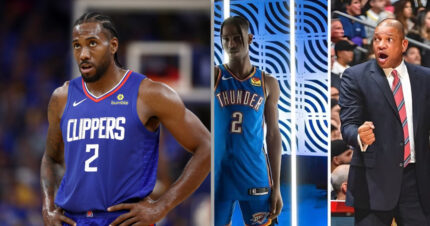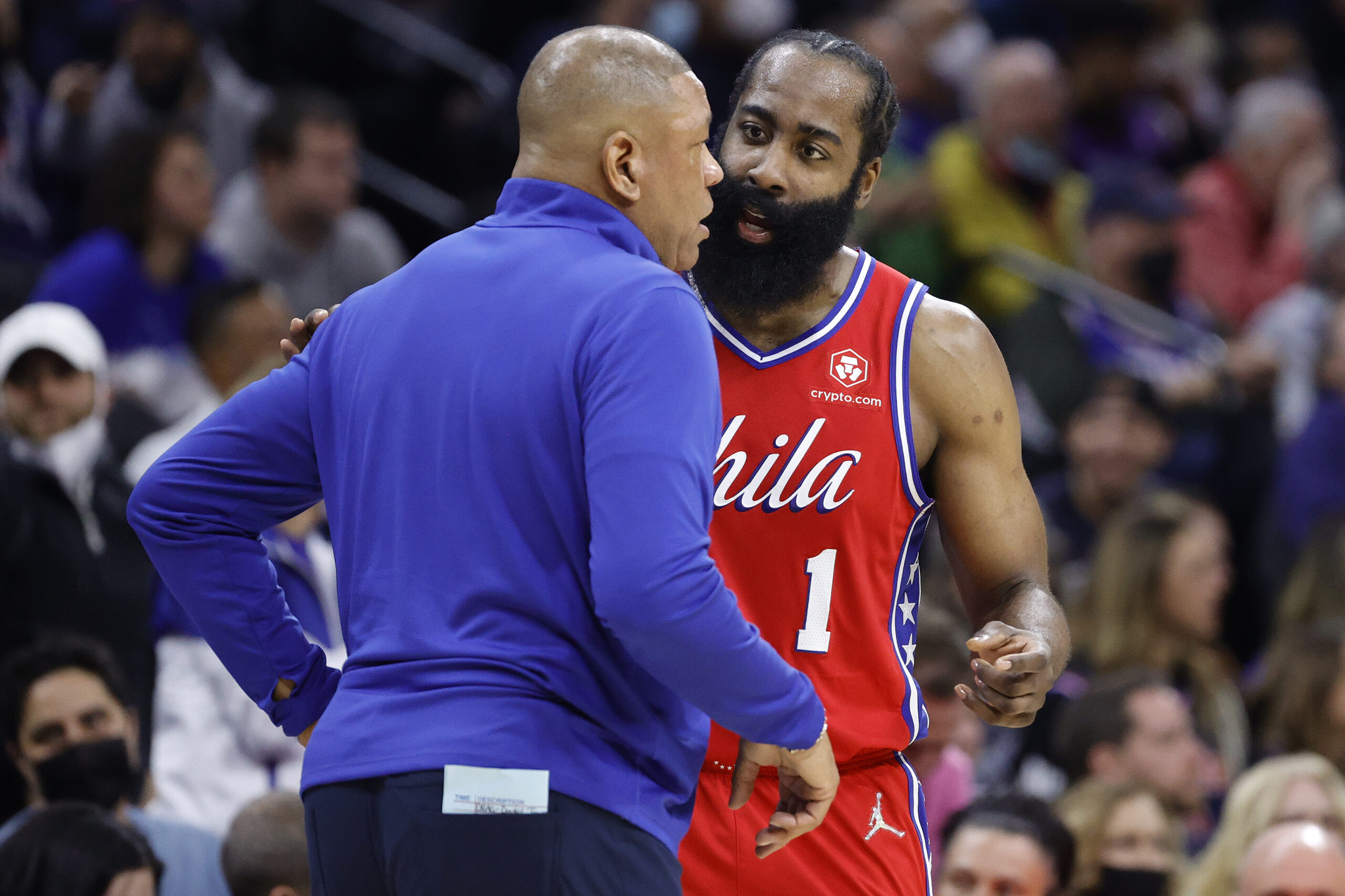Former NBA head coach and current ESPN NBA broadcaster Doc Rivers was a recent guest on “The Bill Simmons Podcast.” The conversation was geared around early observations in the league this season. When asked about the influx of good European players in the league, Rivers offered some sobering advice for the young American baller.
“These young American players better watch out because the European players are better players coming into the league,” Rivers said. “They’re better prepared coming into the league, and they’re competitors. And a lot of our young guys are not.”
Are European Players Better Coming Into The League?
There is a lot of truth in what Rivers said and we’ve written about it some in the context of French phenom Victor Wembanyama and the future of Team USA Basketball.
But let’s parse out what is factual, anecdotal, and some of the reasons for the increase in talented non-American players.
Basketball is and always has been a global game and is among the most popular sports in the world. It became an official Olympic Sport in 1936 during the Berlin games. When late NBA commissioner Adam Silver sent professional NBA players to the 1992 Summer Olympics in Barcelona, the game was supercharged worldwide.
Coaches from all over the world have been sharing strategies, training methods and more for decades. As capitalism exploded and as sports became a vehicle for government propaganda in non-capitalist countries, professional basketball became a viable way to earn a lot of money.
The United States still produces the most basketball talent in the world. But the best players are no longer exclusively American as they once were 15-20 years ago.
The NBA season is only a few weeks old and metrics are still a little noisy. But a look at the top-10 and top-20 in BPM (box plus/minus), a box score estimate of the points per 100 possessions a player contributed above a league-average player, translated to an average team. It’s a precursor to the preferred EPM (estimated plus minus), which looks at the points per 100 possessions a player contributes to their team. The latter stat won’t be available for another few weeks.
All that said, BPM so far is telling. Among the top-10 in BPM this season it’s split 50/50. Half the players are American, the other half non-American. In the next 10 (11-20), it’s a 70/30 split. Seven are American, three non-American.
What does that mean?
It means the top-end talent in the league isn’t strictly limited to American players. But there are still more good American players than American players.
Rivers said the European players, and we will assume that’s a catch-all designation for non-American, are better players coming into the league and better prepared.
The Games Is Global And Their Is Talent Everywhere
That might be true in specific circumstances. But it’s not an absolute.
Yes, Dallas Mavericks star Luka Doncic was ready to dominate the NBA on day one. He was the best player in Europe as a teenager and dominated EuroLeague and EuroBasket, a league and competition against professional men.
Nikola Jokic was a positive EPM machine from day one, but his conditioning held him back. He solved that problem and is the world’s best player.
But Greek national Giannis Antetokounmpo, who has two MVPs a two Finals MVP and DPOY, wasn’t dominant from day one. He was a net negative his first two seasons in the league and didn’t become an All-Star until year four.
LeBron James was a pretty good team player, day one. So was Chris Paul. Both were EPM positives as rookies.
It’s all case by case and there are plenty of factors that determine the effectiveness of a player, regardless of where they’re from.
But there is something to player development and our AAU structure versus what some European countries do.
On the podcast, Rivers talked about a recent panel he was on where they charted youth basketball. He said on average during the summer, an American kid in the AAU system plays six games per week and has one practice. In Europe, it’s the opposite. There is one game and six practices.
Rivers lamented the experience his son Austin went through as an AAU player; the former Philadelphia 76ers head coach said it drove him nuts how many games his son was playing.
There is something to be said about development within a team environment: practice, three-on-three and five-on-five sets.
Part of the reason some European players come to the league better prepared to help teams win is because of how they’ve been coached in basketball.
In America, the best players have their hands on the ball the majority of the time. In AAU there are seldom, if any, tactical points being made. The best player overwhelms with his talent and gets the score or the stop.
In Europe coaches lean heavily on tactics because the talent isn’t as overwhelming. So there is a knowledge some players have about doing the necessary things to help their team score. Split cut, screening away, back cuts, etc. Ball and man movement are prioritized.
There was a clip of Golden State Warriors superstar Stephen Curry (American), from his summer hoops camp that went viral. In the clip Curry is telling his campers that begging for the ball, not getting it and standing around, is the weakest move in basketball. He tells them any other decision is the right one. Emphasizing movement.
He is the king of movement in the NBA — equally as dangerous with or without the basketball.
There are some European players who understand that concept well and know how to do things without the ball to help the team score.
In basketball, you are trading possessions for points. Who can help a team win possessions? Those players are extremely valuable.
“Players are far more talented [today] than we ever were,” Rivers continued. “It’s not even close. But they don’t know how to play. They don’t know how to play team basketball…We got to get back to that. Or I’m telling you American players, you’re going to lose jobs.”
The individual brilliant scorer will always have a place in the NBA, American or non-American. But you’re going to have to be elite, if that is the only thing you can do. When I say elite, we’re talking top-5 scorer in the league and top-5 in isolation points per possession.
Everyone else better have skills that help teams win possessions because whether you’re American or not, if you can’t help a team do that you won’t be able to play in this NBA.



